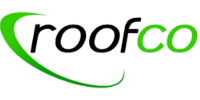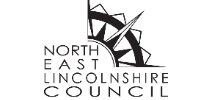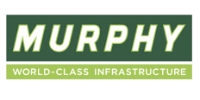Why Invest in Organic SEO?
Unlike paid ads that vanish when the budget runs out, organic SEO delivers sustainable results that grow with your business. Here’s why partnering with a results-driven SEO agency like Hydra can benefit your business:
Bring the Right People to Your Site
By targeting the search terms that matter, organic SEO attracts visitors who are already looking for what you offer, making your traffic more relevant, and more valuable. As a trusted SEO agency, we’ve seen how powerful the right keywords can be in driving quality leads.
Turn Visitors into Customers
Our results-driven SEO management strategies nurture people at every stage of their journey, from first click to final enquiry.
See Value That Lasts
SEO may take time, but the impact endures. Once you’ve earned strong organic rankings, they continue to deliver traffic and ROI long after initial work is done.
Strengthen Your Reputation
A brand that shows up at the top of Google isn’t just visible, it’s trusted. High rankings send a signal of credibility to potential customers.
Stay Ahead of Competitors
In competitive markets, ranking well can be the difference between winning and losing a customer. Choosing the right SEO company ensures you’re not left behind.
Grow Locally or Nationally
Whether you’re focused on Sheffield, the wider UK, or beyond, organic SEO scales with your ambitions.
Keep Pace with Change
Search engines evolve constantly. With a partner like Hydra, your SEO adapts seamlessly, so you don’t lose ground when algorithms shift.

Your Trusted SEO Agency
The right SEO strategy doesn’t just improve your rankings — it drives real business growth. We help you show up where it matters, connect with people actively searching for what you offer, and turn visibility into measurable results. We work with ambitious brands to increase their presence in search, attract high-intent audiences, and turn clicks into real opportunities. With a focus on sustainable growth, our SEO management strategies are clear, performance-driven, and built to earn trust. By combining data, insight, and creativity, we grow your organic presence and deliver results that last. As a core part of your wider digital marketing strategy, SEO helps you stay visible, relevant, and competitive — even as search trends and algorithms evolve.
Find out moreWhat to Expect
Strategic Keyword & Intent Mapping
We combine in-depth keyword research with behavioural insight to uncover how your audience searches at each stage of their journey. This allows us to build a strategy around terms that align with intent — capturing traffic that’s primed to convert, not just browse.
On-Site Optimisation That Connects with Users
We optimise your site structure, content, and performance to meet both user expectations and search engine standards – making it easier for the right people to discover your business and take action.
Focused Tactics to Maximise ROI
We make your SEO budget work harder — identifying the tactics that deliver lasting results and optimising continuously to increase efficiency and return over time.
Targeted Campaigns That Capture Demand
Our tailored strategies are designed to attract the right traffic, people actively searching for what you offer, turning visibility into genuine business growth. Data-driven optimisation for long-term value with data-driven insights and targeted optimisation, we help you get the most out of your marketing spend, delivering sustainable, long-term value.
Search Visibility That Builds Trust & Credibility
Ranking well isn’t just about being seen – it’s about being trusted. We help you establish a credible, consistent presence in search results that positions your brand as a leader in your market.
What We Deliver
Steady Growth in Organic Traffic
By improving your visibility in relevant search results, we aim to increase the volume – and quality — of traffic landing on your site over time.
More Relevant Leads and Customer Enquiries
Targeting users with strong intent helps bring more qualified visitors to your website — people who are more likely to engage with your content, make an enquiry, or convert.
A Stronger Return on Investment
We focus on what moves the needle. With ongoing optimisation and data-led decision making, your SEO spend is directed toward sustainable, measurable outcomes.
Lasting Improvements, Not Just Short-Term Wins
Our work is designed to support long-term visibility. While results build over time, our approach is focused on consistency, momentum, and resilience — not short-lived spikes.
Enhanced Visibility and Brand Recognition
As your search presence improves, so too does your visibility with potential customers — helping to build familiarity, trust, and a stronger brand position in your space.
A More Competitive Position in Search
We keep a close eye on your industry landscape, aiming to uncover opportunities where you can outperform your competitors and secure stronger positions in search results.
The Benefits of SEO
Higher Rankings
We optimise technical structure, content, and backlinks.
Sustainable Growth
SEO builds momentum and visibility over time.
Improved User Experience
Search-friendly sites are usually user-friendly too.
Better Quality Traffic
Rank for terms that match real customer intent.
Full Strategy Support
From audits to implementation, we handle it all.
Why Choose Hydra as Your SEO Agency?
Hydra are an established, results-driven SEO agency with over a decade of experience helping businesses across the UK achieve higher rankings, attract quality traffic, and grow sustainably online. From technical SEO to content optimisation, our strategies are designed to deliver measurable results.
While we’re proud of our Sheffield roots, our client base spans the whole of the UK, making us the trusted SEO partner for organisations nationwide. What sets us apart is our commitment to understanding your business needs and providing transparent, client-focused services. Hydra isn’t just another SEO agency; we’re your long-term partner in digital success.
Trusted to Deliver, Proven to Perform.
Our Approach

Collaboration at the core
The first step, and possibly the most important, is an initial conversation where we get to know each other. We'll explore your goals, challenges, and expectations, while giving you a clearer picture of how we work. Think of it as a chemistry check a chance for both sides to see if the partnership feels right. Because when there’s a good fit, the campaign has the best chance of long-term success.

The Discovery Phase
Once you agree to move forward with your campaign, we begin the discovery phase. This is where we sit down with you again to review your brief, goals, timelines, requirements, and any technical constraints. We also take a deeper dive into your business objectives to ensure we fully understand what success looks like for you.
This stage ensures everyone is aligned and clear on what's needed from the outset, giving your campaign the best chance of success. After the discovery session, we create a detailed SEO strategy for your approval before any work begins.

Integrated Partnership
From day one, you'll have a dedicated account manager who acts as your primary point of contact, ensuring seamless communication and a strong understanding of your brand, goals, and challenges. We work as an extension of your team, staying in regular contact through updates, meetings, and collaborative feedback.
This integrated approach allows us to respond quickly, provide strategic guidance, and keep every campaign aligned with your broader business objectives. We're here to support, advise, and grow your marketing efforts, side by side with you.

Transparent Reporting & Insights
We believe in complete transparency, which is why our reports are clear, comprehensive, and focused on what really matters. We deliver actionable insights into campaign performance, audience behaviour, conversion rates, and opportunities for improvement. Regular review meetings ensure we stay aligned, openly discuss progress, address challenges, and shape the next steps together.
Our data-driven approach underpins everything we do. By closely analysing performance metrics, we identify what’s working, what isn’t, and where to refine. These insights guide smarter decisions that maximise your budget, boost ROI, and drive sustainable growth, ensuring your budget delivers maximum return.
" Excellent team who are respectful, kind and extremely knowledgeable. Their skills and data-driven approach helped us improve our SEO results in just a couple of months and they provided additional advice and training. Highly recommended for any digital marketing services. "


Let's start creating together
Let Hydra be the solution for your next project.
Frequently Asked Questions
Can Hydra Creative provide support for internal teams during extended leave?
Our team of in-house experts are experienced in integrating with internal teams. We can provide seamless SEO, video production, design, and web development support for your team during extended employee leave.
You can find out more about how we can provide extended leave support for your internal teams in our blog post.
Do you guarantee first-page rankings?
We don't make empty promises, and neither should anyone else. SEO is influenced by many factors, some out of our control. We guarantee a strategic, ethical approach designed to improve your visibility and bring in relevant, high-quality traffic.
How long does it take to see results from SEO efforts?
SEO results can vary depending on several factors, including your website's current state, the competitiveness of your industry, and the quality of your SEO management strategy. Generally, you may start seeing noticeable improvements within three to six months, with more significant results over time.
How much does SEO cost, and what's included?
Our SEO services are tailored to your needs, so pricing depends on the level of support required. We'll always give you a clear breakdown of what's included—typically covering technical audits, keyword strategy, on-page optimisation, content planning, link building, and reporting.
What exactly is SEO, and how does it help my business?
SEO (Search Engine Optimisation) is the process of improving your website’s visibility in search engine results. By optimising your site’s structure, content, and authority, we help your business appear when people search for your products or services. The result? Increased traffic, more leads, and better long-term return on investment compared to paid ads.
What happens if we stop our SEO Strategy?
If you stop your SEO management, your website may gradually lose visibility in search results as competitors continue to optimise their sites. Over time, this can lead to a drop in traffic, leads, and online enquiries. SEO is a long-term investment, while it builds momentum over time, it also requires ongoing maintenance to retain and grow your rankings.
Awards & Accreditations







-beb2f0.png)





















